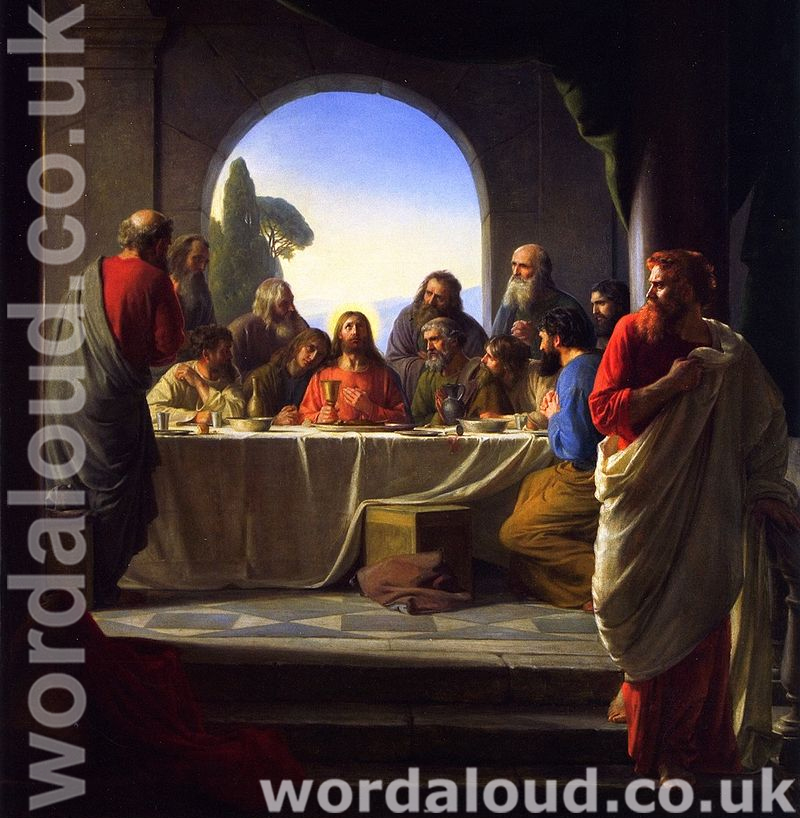Christian Art | King James Audio Bible KJV Psalms | King David As A Boy
Psalms KJV | King James Audio Bible | Psalm 95 | Invitation To Worship
The psalms, ancient anthology of religious poetry, offer a profound exploration into the human condition, spiritual longing, and divine transcendence. The psalms stand as testament to the enduring power of faith and expression across centuries and cultures.
The historical journey of the psalms, traced from their origins in the ancient world to their integral role in the Judeo-Christian canon, reveals a rich tapestry of authorship and purpose. The psalms’ thematic diversity, encompassing praise, lament, wisdom, and royal themes, reflects a broad spectrum of human emotions and experiences, offering insight into the spiritual and communal life of the faithful.
Liturgical use of the psalms in both Jewish and Christian traditions showcases their versatility and profound impact on worship practices. From daily prayers to special festivals, the psalms have been a foundational component of religious expression, adapting to various cultural contexts and denominations, this underscoring universal appeal and relevance.
A comparative analysis of the psalms across different translations highlights nuanced ways in which language, style and theological interpretation shape our understanding and appreciation of these texts. The KJV’s archaic yet poetic language brings a sense of solemnity and depth, while the NIV and NRSV offer clarity and modern accessibility. These variations in translation underscore the psalms’ multifaceted nature and the importance of translation in shaping our engagement with sacred texts.
The psalms are not merely ancient songs but living texts that speak to the human soul’s quest for meaning, comfort and connection with the divine. Whether in a synagogue, a church, or a personal space of reflection, the psalms enable worship, contemplation and spiritual growth. It is in the psalms that God teaches us how to pray.

![]()
Origins And Authorship
The psalms were written over several centuries, from the time of Moses (around the 15th century BC) through the post-Exilic period (after the 6th century BC). This span of composition reflects the diverse historical contexts and experiences of the Israelite people.
Traditionally, King David has been considered the primary author of the psalms, credited with composing many of them. Other named authors of the psalms include Asaph, the sons of Korah, Solomon, Moses, and Ethan the Ezrahite.
Integration In The Biblical Canon
The psalms hold a unique place in the biblical canon, serving as a bridge between the Mosaic laws and the wisdom literature, and the prophetic books. They are positioned after the Pentateuch (the first five books of the Bible) and the historical books, and before the wisdom literature (such as Proverbs and Job) and the prophets. This placement reflects their role as a summary of the spiritual and emotional journey of Israel, encapsulating themes of law, history, wisdom and prophecy.
In Jewish tradition, the psalms are part of the ‘Writings’ (Ketuvim), the third section of the Tanakh. As such, the psalms provide insights into the spiritual and communal life of Israel, offering expressions of prayer, worship, lamentation and praise.
Thematic Structure Of The Psalms
The psalms, with their intricate blend of personal emotion and theological depth, suggest insight into the human quest for understanding and communion with the divine. Through varied themes and literary artistry, the psalms offer comfort, inspiration and wisdom for countless believers. The enduring appeal of the psalms lies in their capacity to articulate the breadth of human experience – from depths of despair to heights of ecstatic praise – within the framework of a profound and enduring faith.
Praise
Psalms of praise are characterized by exuberant expressions of adoration for God’s majestic acts and attributes. They often feature vivid descriptions of God’s creation, providence, and supremacy. For instance, Psalm 19:1 proclaims, ‘The heavens declare the glory of God; and the firmament sheweth his handywork’ (KJV), illustrating the Psalmist’s awe at the natural world as a testament to God’s creative power.
Lament
Lament psalms, among the most poignant expressions in the Bible, articulate deep anguish and plea for divine intervention. These Psalms often follow a pattern of lament, petition, and an expression of trust. Psalm 13, for example, begins with a heartrending question, ‘How long, O Lord? Will thou forget me forever?’ (Psalm 13:1, KJV), capturing the Psalmist’s sense of abandonment. Despite their initial tone of despair, many lament Psalms conclude with an affirmation of trust in God, illustrating journey from sorrow to faith.
Wisdom
Wisdom psalms are didactic, offering guidance on living in accordance with divine principles. These psalms often contrast the paths of the righteous and the wicked, as in Psalm 1, which opens with, ‘Blessed is the man that walketh not in the counsel of the ungodly’ (KJV). This Psalm uses antithetic parallelism, a common device in Hebrew poetry, where two contrasting ideas are set against each other to highlight moral choices and consequences.
Royal Psalms
Royal psalms focus on themes of kingship and messianic prophecy. These psalms, such as Psalm 2 and Psalm 110, explore relationship between the earthly king and divine authority. Psalm 2:6-7, for instance, declares, ‘Yet have I set my king upon my holy hill of Zion. I will declare the decree: the Lord hath said unto me, Thou art my Son; this day have I begotten thee.’ (KJV) This reflects divine sanction of the king’s rule and a prophetic glimpse into messianic expectations of the time.

![]()
Liturgical Use Of The Psalms
The psalms, through their liturgical use across Jewish and Christian traditions and their adaptation in various cultural contexts, underscore their universal and enduring relevance. The psalms serve as a bridge between the ancient world and contemporary faith practices, offering timeless expressions of human emotion and divine encounter. Whether in a synagogue, a cathedral, or a remote village church, the Psalms continue to resonate, providing a voice for worship, lament, praise and contemplation.
Jewish Tradition
The Psalms, or ‘Tehillim’, play a vital role in Jewish religious life, encompassing a range of liturgical functions:
- Daily Prayers: In traditional Jewish prayer services, specific psalms are recited daily. For instance, Psalms 145-150 are part of the daily morning service, praised for their thematic depth and spiritual potency.
- Sabbath And Festivals: On the Sabbath, psalms are used to both welcome and bid farewell to the day. Psalm 92, for example, is known as the ‘Song for the Sabbath Day’ and is recited during Sabbath services. The psalms are also central in the celebration of Jewish festivals; for instance, Psalm 30 is recited during Hanukkah, commemorating the rededication of the Second Temple.
- Hallel And High Holy Days: The Hallel, a collection of Psalms sung on joyous occasions, illustrates the psalms’ role in celebrating God’s deliverance. During the High Holy Days, such as Rosh Hashanah and Yom Kippur, specific psalms are integrated into the liturgy, reflecting themes of repentance, introspection and divine judgment.
Christian Tradition
In Christianity, the psalms have been a foundational component of worship across various denominations and traditions:
- Liturgical Worship: In the liturgical traditions, such as Catholic, Orthodox, and Anglican, the psalms are integral to the daily office. The practice of chanting or reciting psalms in a set cycle imbues these traditions with a rhythm that connects daily life to scriptural meditation.
- Hymnody And Music: The influence of the psalms on Christian hymnody is profound. Many traditional hymns are either adaptations or direct quotations of psalms, and this influence extends to contemporary Christian music, where psalms continue to inspire worship songs and spiritual music.
- Personal Devotion And Reflection: Beyond corporate worship, the psalms are a resource for personal reflection and prayer. They offer a framework for personal spiritual practices, helping believers to express a range of emotions from lament to joy.

![]()
Cross-Cultural Perspectives
The psalms’ adaptability to various cultural contexts has led to a rich diversity of liturgical practices:
- African And Afro-Caribbean Contexts: In African and Afro-Caribbean traditions, the psalms are often recited or sung in dynamic and rhythmic styles, reflecting the cultural vibrancy of these communities. The psalms are also used in storytelling and oral traditions, where their narratives and themes are woven into the fabric of community life.
- Eastern Christian Traditions: In Eastern Christian traditions, the psalms hold a significant place in liturgical chants. Each tradition, whether Coptic, Ethiopian, or Byzantine, has developed unique melodic structures for chanting the psalms, reflecting the rich musical heritage of these communities.
- Indigenous Christian Communities: In indigenous Christian communities, the psalms have been translated into local languages and incorporated into traditional forms of worship.
Comparative Analysis
A comparative analysis of the psalms in different translations, such as the KJV, NIV and NRSV, reveals the rich tapestry of biblical interpretation. Each version offers unique insights, shaped by its translation philosophy and linguistic choices. Understanding these differences enriches our engagement with the psalms, illuminating complex interplay between language, theology, and historical context in biblical translation. This comprehensive view underscores the multifaceted nature of the psalms and the importance of translation in shaping understandings.

Language and Style | King James Version (KJV)
The KJV’s deliberately archaic English – looking back through time from the Jacobean and through the Elizabethan to earlier texts – is not only a reflection of its time but also a deliberate stylistic choice. Leland Ryken, in his comprehensive study of the KJV, emphasizes its literary excellence, noting that its translators aimed to create a Bible that was not only accurate but also rhetorically powerful. The use of phrases like ‘thou shalt’ and ‘he maketh me to lie down’ in Psalm 23 are examples of this style, which imbues the text with a sense of timelessness and solemnity. However, this choice of language can make the text less accessible to modern readers, as the archaic language may require additional interpretation.
New International Version (NIV)
In contrast, the NIV uses contemporary language to make the biblical text more accessible. Its translation philosophy, as outlined in the NIV Preface, aims for a middle ground between word-for-word accuracy and thought-for-thought clarity. This is evident in the translation of Psalm 23, where phrases are rendered in modern English, such as ‘he leads me beside quiet waters’, making it immediately understandable to the contemporary reader.
New Revised Standard Version (NRSV)
The NRSV stands out for its commitment to academic standards of translation. Bruce M. Metzger, one of its primary translators, highlighted its goal of being as literal as possible while still producing a readable text. The NRSV often preserves the original text’s structure, which can provide insights into the Hebrew poetry’s form and rhythm. However, this approach can sometimes result in a translation that feels less fluid to a modern English reader.

Thematic Portrayal | Imagery And Metaphor In The King James Version KJV
The KJV’s translation retains much of the Hebrew text’s poetic imagery and metaphor. Gordon Campbell, in his work on the KJV, points out how this translation captures the beauty and richness of the original language. The metaphoric language in Psalms, such as the depiction of God as a shepherd, is rendered with a poetic grace that resonates with readers and has influenced English literature and language.
Emotional Tone Across Translations
The emotive depth of the psalms is variably captured across translations. While the KJV often conveys a dramatic and emotive tone, as Leland Ryken observes, modern translations like the NIV and NRSV sometimes adopt a more straightforward approach. This can result in a loss of some emotional nuances but gains in clarity and directness, making the psalms more approachable for contemporary audiences.
Theological Nuance and Translation
Theological nuances in the psalms are closely tied to translation choices. John Goldingay, in his theological explorations, discusses the implications of translating key terms. The KJV’s choice to translate ‘hesed’ as ‘lovingkindness’ encapsulates a complex concept of covenantal love, which may be rendered differently in other translations. Such variations can subtly influence the reader’s theological understanding.

Comparative Analysis | Formal vs. Dynamic Equivalence
The debate between formal (word-for-word) and dynamic (thought-for-thought) equivalence in translation is a crucial aspect of biblical translation. Ryken’s ‘The Word of God in English’ underscores the importance of this debate, noting that it significantly affects the reader’s experience and interpretation of the text. The KJV, with its formal equivalence approach, offers a different reading experience compared to the NIV’s or NRSV’s more dynamic equivalence method.
Theological Interpretation In Translation
The translation of theological terms and concepts can vary significantly across versions, affecting interpretive nuances. For example, the handling of the term ‘selah,’ found frequently in the Psalms, varies across translations. The KJV often leaves it untranslated, maintaining a mystery and ambiguity of the original text, while other translations attempt to provide explanatory notes or omit it for clarity.
Praying The Psalms | King James Audio Bible KJV
In conclusion, the psalms teach us how to pray, immersing us in profound depths of human spirituality articulated through its majestic and timeless language. The KJV translation, with its poetic and archaic style, captures an essence of these ancient prayers in a manner that resonates with solemnity and grace. Within its verses, we encounter a spectrum of human emotions, from depths of despair to peaks of ecstatic praise. The psalms in the King James Version not only provide a mirror to our souls but also guide us in lifting our voices to the divine. They represent a sacred conversation that spans centuries, offering us language that echoes such reverence and depth of our spiritual ancestors. Through the psalms, believers across generations have found words to express their deepest fears, greatest joys, and enduring hope – an indispensable part of our spiritual heritage and prayer life.

![]()








